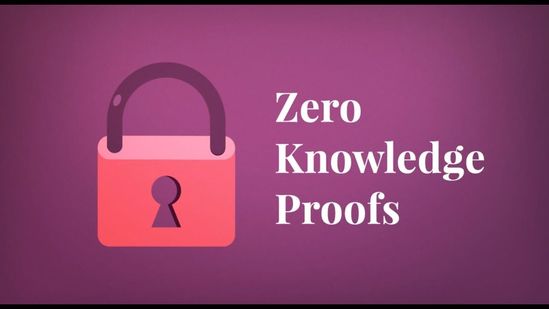
In the age of the internet, we reveal more about ourselves than ever before. We sacrifice pieces of ourselves each time we log in, pay something, or subscribe to a service. But what if you could prove something exists without sacrificing any actual information?
That’s not science fiction—it’s already here, thanks to something called Zero Knowledge Proof (ZKP).
This technology is becoming a core part of blockchain, digital security, and Web3. In this blog, we’ll break down what Zero Knowledge Proof are, how they work, and why they matter in today’s digital world.
A Zero-Knowledge Proof is a cryptographic procedure which enables a party (called the prover) to prove to another party (the verifier) that a statement is true, without revealing any of the underlying data.
Let’s consider that for a moment.
Imagine it’s possible to demonstrate that you have enough money in your account to pay for a purchase—without showing your bank balance. Or being able to demonstrate you’re over 18 without showing your date of birth or ID. Zero-Knowledge Proofs make this kind of verification possible.
The concept was first suggested in 1985 by three researchers—Shafi Goldwasser, Silvio Micali, and Charles Rackoff—and has since become one of the most powerful tools in online privacy and security.
How Do Zero Knowledge Proof Work?
To understand how ZKPs can do what they do, let’s use an old favorite analogy called “The Magic Cave.”
The Magic Cave Analogy:
Imagine a loop-shaped cave with two paths: Path A and Path B, meeting at a locked door at the center. Only someone who knows the secret password can unlock the door.
You’d love to persuade someone that you have the password—but not actually tell them what it is.
Here’s how:
You go into the cave and choose path A or path B.
One person stands outside and shouts what path they want you to come out of.
If you have the password, you can open the door and come out of the path of your choice.
And If you do not possess the password, you’ll only guess correctly 50% of the time.
Do it several times, and the likelihood of lying drops to close to zero.
This shows that information can be proven without divulging the secret itself.
Zero Knowledge Proof in Real World Usage
ZKPs are not just a theory—these are already used in real-world technologies, especially in blockchain and Web3 applications.
- Private Cryptocurrency Transactions
One of the most well-known usages of ZKPs is in privacy-focused cryptocurrencies like Zcash. Here, ZKPs are used to verify transactions without revealing the amount, sender, or receiver.

The network may still attest that no coins were created or stolen, and everything is fine—but without giving away any private data.
- Cryptographic ID Verification
Imagine being able to prove your citizenship or age to online services without the need to upload sensitive ID documents. With ZKPs, you can confirm that you qualify without being required to share who you are.
This is revolutionary for KYC and electronic onboarding processes in banks, fintech apps, and government agencies.
- Secure Voting Systems
In the voting based on blockchain, ZKP can be utilized to verify that the vote actually has been cast without divulging the vote itself or even the identity of the voter. There is both transparency and privacy.
- Healthcare Data Privacy
In the medical field, ZKPs allow for patients to verify test results or illnesses without disclosing full health data.
- Zero Knowledge Proof Types
There are several types and forms of ZKPs:
Interactive ZKPs: Require bidirectional communication between verifier and prover.
Efficient, light-weight proofs used in use cases like Zcash and zkSync.
A more recent version with higher scalability and zero need for trusted setups.
Both these technologies are ongoing to make ZKPs faster, cheaper, and easier to deploy.
ZKPs and Blockchain: The Perfect Blend
Blockchains are great for transparency, but they also expose each transaction publicly. That’s a problem for users and businesses that care about privacy.
This is where Zero-Knowledge Rollups (ZK-Rollups) come in. These are Layer 2 blockchain solutions that batch several transactions and forward them to the underlying blockchain as a single zero-knowledge proof.
Advantages of ZK-Rollups are:
Lower gas fees
Higher scalability
Better user privacy
Faster transaction speed
Projects like zkSync, StarkNet, Polygon zkEVM, and Scroll lead the charge for ZK-powered scaling.
ZKP Benefits
Efficient: ZKPs can minimize and speed up verification processes.
Trustless systems: No reliance on third parties or centralized verifiers.
Compliance-friendly: Enables businesses to satisfy data protection laws such as GDPR without holding sensitive data.
⚠️ Challenges to Consider
High computational expense for proof generation
High learning curve for developers
Conclusion: The Future of Privacy Is Zero Knowledge
With each move towards a digital, decentralized world, the need for privacy-preserving technologies has never been greater. Zero-Knowledge Proofs offer an outstanding solution—proving without revealing.
Whether it’s secure identity verification, private transactions, or scalable blockchains, ZKPs are becoming a building block for Web3 and more.
If privacy, trust, and digital security are important to you, then Zero Knowledge Proof are something to be aware of—and something to watch.